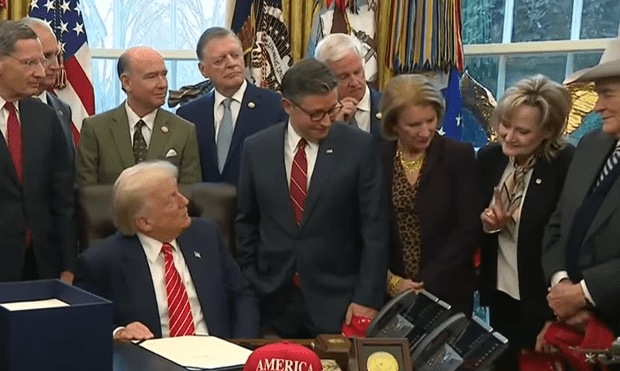For many in our country, it has become a generational habit to expect and demand that government owe the assistance it confers.
But impoverished Americans deserve more than false hopes provided by government programs and the spurious promises of public sector salvation. We have allowed Washington to wage its ineffective “war” on poverty for decades; it is time for a different direction.
That is not to say, however, that the federal approach has accomplished nothing, as it is impossible to spend trillions of dollars and not deliver some indirect benefit. But based on the obscene amount of money expended and time invested, positive returns have been negligible. Not only is the mechanism inefficient in practice, the damage to our Constitution has been widespread.
Although government assistance may temporarily provide a menial existence, history has demonstrated that it cannot permanently elevate the needy out of poverty. To the contrary, instead of providing real opportunity and raising the economic status of struggling individuals, such aid often results in consequences harmful to those seeking to achieve economic security.
For example, the entitled status of one addicted to handouts often works to eliminate any feeling of responsibility the recipient once enjoyed for his own welfare and that of his family and neighbors, transforming an industrious and self-reliant individual into a dependent creature without his realization. In removing his responsibility to provide for his own material needs, the government takes from him opportunity and his will to be truly free. It likewise makes him more likely to support a never-ending expansion of public programs, despite the incalculable harm to personal liberties.
Moreover, by forcibly divesting taxpayers of the means to provide for their personal needs and confiscating substantial income from society’s economically productive segments, government action hinders the creation of more opportunity for those who seek to benefit from its benevolence. Government has no capital of its own and simply cannot create wealth, so in order to provide benefits, it must first collect capital from the industrious and then redistribute the money – minus a transaction fee, of course – to other, select members of society it deems politically worthy. Not only is such a system unfair, inefficient and burdensome to economic freedom, as the burden of graduated taxation is unfairly levied against a smaller and smaller percentage of income earners, it becomes more difficult for the private sector to provide jobs for the unemployed or the poor.
If we are sincere about lifting our neighbors out of poverty, we must first admit that government is not well-suited for the role of caretaker.
Rather than relying on the power of the tax code to redistribute income, a long-term reduction in poverty will only be realized when individuals, families, churches and charitable organizations – in conjunction with private enterprise – voluntarily work together to provide assistance and broaden the creation of economic opportunity.
Leaders should enable people to cooperate with one another without coercion or central direction, reducing the area over which political power is exercised.
By encouraging private enterprise and providing opportunity, Americans will experience less reliance on government programs, an increased work ethic and a newfound sense of dignity. Perhaps more importantly, subsequent generations will realize the nature of hope, liberty and happiness that are born as the result of the prideful elimination of dependence.
The people have demanded that the government play a limited role in relieving the suffering of our most needy, especially with the disabled and elderly, but it cannot realistically provide a long-term solution to the problem of poverty.
Only education, opportunity and self-determination can do that.
***** State Sen. Chris McDaniel







